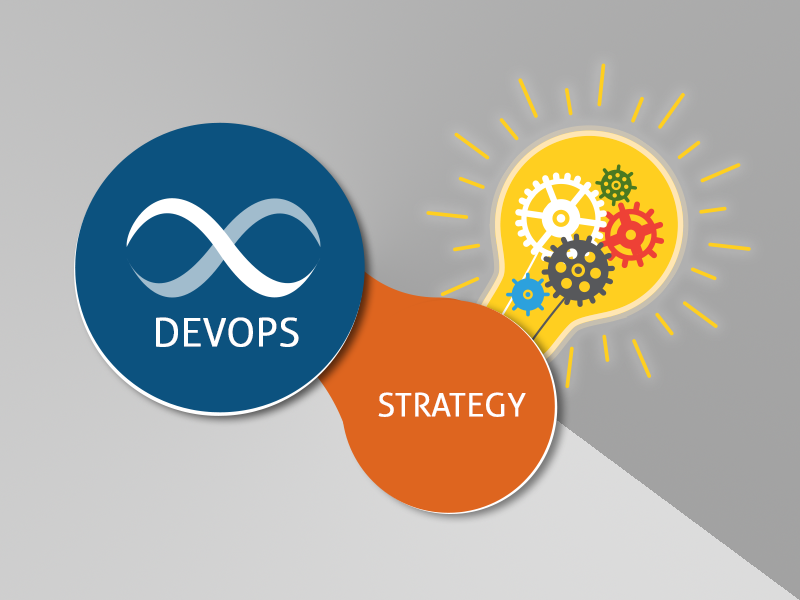When a large-scale and small-large business tries to introduce DevOps models in their organization for improving productivity and workflow, they can face lots of hurdlesâbut they can also find great success. The DevOps environment is a very complex environment, and it is very difficult to monitor and maintain. In recent times, most of the ITOps teams and Softwares have begun to adopt DevOps into their work culture for the best results. Below, a look at some of the challenges of DevOps implementation, and how to face them.

DevOps For Business & Major Challenges
Most of us know that the main goal of DevOps is to achieve or complete the work successfully, i.e. integration and automation. The challenges of DevOps implementation can be broad.
Clashes Between Dev and Ops Toolset
If we look at the Dev and Ops, they are two different toolsets. Thus, by combining these toolsets as one, you’ll get more benefits for your business. The main challenge for implementing DevOps is totally different toolkits and metrics between development and operation teams.
Still, there is a way to overcome this. We can do so by implementing them to company goals and not distracting from the company goals. In implementing this process, we can overcome the challenges, which makes DevOps work smoother. After a certain period of time, it becomes easier.
Changing from Legacy Infrastructure to Microservices
Most of the older applications are not up to the mark, and they raise issues while implementing DevOps. In the legacy infrastructure, it tends to have additional problems such as stability issues. It also needs improvement in customer support, etc., resulting in performance slowdowns in the workflow.
To overcome this issue, the organizations need to use latest versions of software and hardware which happens to be microservices at present. When we replace older infrastructure with microservices architecture, we can develop an application that is faster, reliable, and advanced with innovative features available.
Resistance to Change
When any large-business organization or small-business organization starts implementing DevOps in their business for the first time, most of the stakeholders and team members are unaware of the features provided by DevOps and feel uncomfortable working with DevOps. Every employee in the organization needs to understand the tools to get comfortable working with DevOps. This is not an overnight transition, but improvements can happen gradually over time. When you successfully provide enough training to key stakeholders and team members, they will become accustomed to the DevOps culture and contribute to its development process.
Focusing More Time on Tools
Initially, we need to avoid fragmented toolset adoption. While an organization is adopting a DevOps environment, introducing new tools is not enough. In addition, the organization needs to train their employees on the latest version so that staff can use the new tools effectively. Skilled staff is the important factor in the transition to DevOps. Once they get accustomed to the tool and follow proper workflow, a more successful business model can flourish. All this to say that the company needs to focus more time on staff rather than focusing more time on tools.
How To Defend the Challenges When We Adopt DevOps For Business?
Here are few points on how to overcome the challenges when you adopt DevOps for any organization.
1. Following Guidance Properly
If we look at any organization, proper management plays a key role in success. To follow proper management, employees should follow certain rules such as clear instructions from the higher authority and cogent communication, which makes everything better. The team members should understand the importance of guidelines and work accordingly. One should know the vision of a company and how to achieve it. It is both staff and management coordination that will help you reach an organization’s goals. It is equally important to provide enough resources to the staff by the management, and responsible usage of such resources.
2. Analyzing the Risk
We know that changing from old technologies to new technologies is very difficult. When business analysts take charge of understanding and analyzing the risk of DevOps accordingly, they build the dashboards on the rating scale of a hundred for their reports with certain parameters. This has lots of advantages, which helps experts to understand the problems in the business, details about training information and much more.
3. Improving the Collaboration
When an organization collaborates better, it leads to increase the productivity of the DevOps team. The team members should focus on a single goal instead of focusing on different areas. When an improved collaboration happens, it increases the visibility of an organization and can easily track the issues. DevOps also makes it easy to find the changes made by the team members and other supporting staff involved.
4. Shortage of Tool Knowledge
In DevOps, they have introduced a concept called principles of continuous deployment and continuous testing. Most of the team members prefer to work with old legacy tools because working with new functionalities of tools is complex in the beginning. It takes time to gain full knowledge of new architecture, especially when it is based on the cloud. By this, we can conclude that shortage of tool knowledge will lead to fault choices which can cause issues.
Conclusion
DevOps has moved forward to fulfill the gap between the three important factors of development, operations, and business. While organizations adopt DevOps, they’ll have to face challenges at first, but the success of it all is incredibly worth it.









